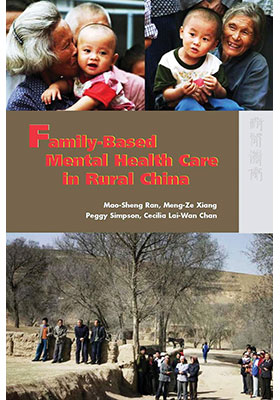Family-Based Mental Health Care in Rural China
(中國農村家庭精神健康護理)
ISBN : 978-962-209-725-4
January 2005
196 pages, 6″ x 9″
- HK$190.00
Ebooks
Also Available on
Without a comprehensive system of mental health care, the Chinese government and mental health care professionals are being confronted with two crucial issues. The first issue is how China will provide mental health services for those who need it in China, the world’s most populous country. Many individuals with a severe mental disorder in China go untreated or receive psychiatric treatment long after the first onset of illness, especially in the rural areas. In contemporary China, providing appropriate medication for managing mental disorders is a key factor. The second issue is how China will improve the quality of the mental health service with scarce resources and at the same time ensure a basic quality of life for people with mental disorders.
The development of mental health services in China has certain characteristics. The mental hospitals play a dominant role in delivering mental health services. Families also play an important role, since more than 90% of people with mental illness are cared for at home with their immediate family members as primary caregivers. Recently, the government has mandated the development of community care, implying that the burden of care be shifted from the country to the family. However, families need help from the professionals to take care of their ill relatives.
Based on a study in Chengdu in China for families with persons suffering from schizophrenia, this book examines how psychoeducational family intervention can be developed in rural areas. Detailed guidelines for effective family interventions, community mental health services, and social welfare and mental health policy are described. It is hoped that these suggestions may be incorporated into existing mental health care systems for the benefit of people with mental disorders in developing countries.
“This is a well-written, well-investigated and important work. It has implications for promoting change in a system that too often neglects the patients with mental illness and their families. The book is filled with respect for the clinicians, patients and families, and has helpful suggestions that can be incorporated efficiently within the existing health care systems. It is a useful book for clinicians and those interested in health care delivery.” —Professor Jeri Hepworth, University of Conneticut School of Medicine





